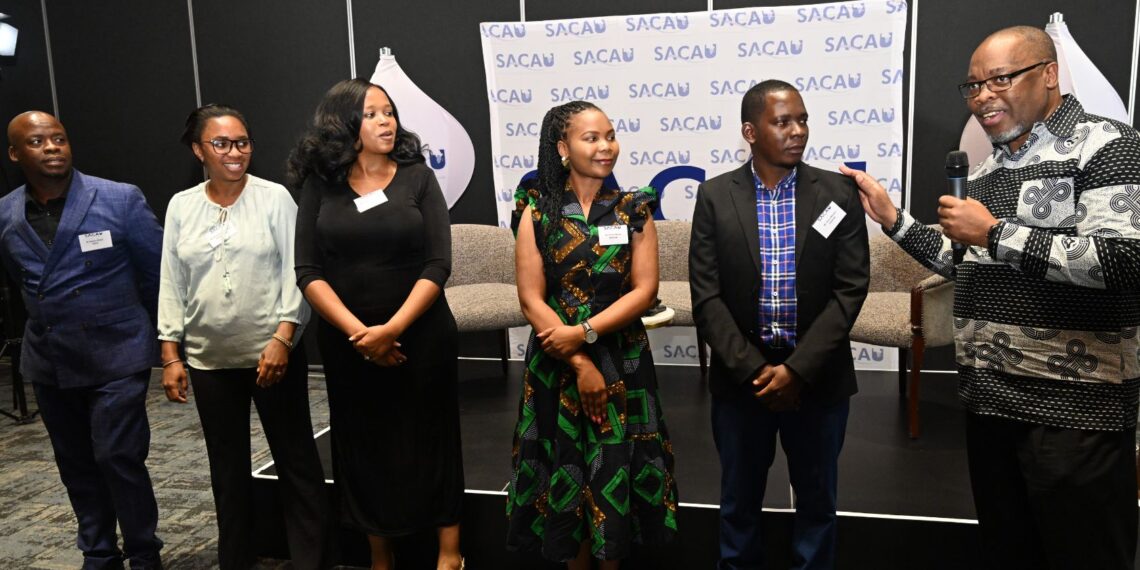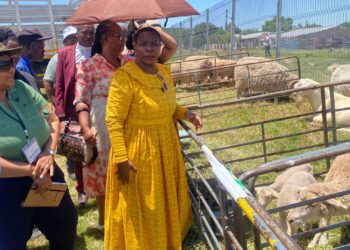Farmers at the recent Southern African Confederation of Agricultural Unions (Sacau) event rallied around a common agenda: scaling agroecology without repeating the mistakes of the past.
In roundtable discussions, they weighed the lessons of conventional farming, explored ways to revive indigenous practices, and mapped out pathways for fairer, more sustainable food systems.
One group, represented by aquaponics horticulturalist Gugulethu Mahlangu, cautioned that while conventional farming has boosted yields and created viable agribusinesses, these gains should not blind policymakers to the environmental and health risks that threaten long-term sustainability.
Furthermore, heavy reliance on synthetic inputs also comes at a cost.
“Previously, soybean farmers would harvest less than five tonnes per hectare. Now, through agroecological practices, we are seeing over 5.5 tonnes per hectare,” Mahlangu noted.
Yet she cautioned that the continuous use of synthetic fertilisers and herbicides has harmed soil health, polluted water sources, and compromised nutrition.
The high cost of imported inputs also poses a barrier for smallholder farmers across Africa, often leaving them dependent on subsidies that can be mismanaged or fail to reach intended beneficiaries.


Bottom-up policies
The group also underscored the need for region-specific research and testing, adding that a blanket approach, where farmers replicate their neighbours’ practices, has proven ineffective.
Locally adapted cultivars, targeted soil health management, and investment in regional research and development were identified as priorities by Mahlangu’s group.
On policymaking, Mahlangu emphasised the need for bottom-up approaches that include farmers, researchers, extension officers, and other key players. “Right now, we are operating in silos. We need a multidisciplinary effort, mindset change, and harmonised policies across SADC that farmers can adapt in their respective countries,” she said.
Related stories
- Sacau: Farmers and leaders call for inclusive agroecology
- Agroecology: Make farmers profitable, not poor
Vision for regional agroecology
Cephas Kamanga, president of Sacau Youth and an agronomist, farmer, and agro-input entrepreneur with the Zambia Farmers Union, described the roundtable as “fruitful and inclusive.”
“We had our questions addressed, especially around strategies for youth-led enterprises. We do not only want to be producers – we want to lead in the value chain,” Kamanga said.
He praised Sacau and its partners for ensuring youth are part of policy discussions. “As we transition, we need wisdom from older generations and the training to equip us for leadership.”
Looking ahead, participants expressed hope for a regional agroecology model built on collaboration, indigenous knowledge, inclusive policymaking, and education.
“Feed a woman, feed a village,” Mahlangu reminded the room, highlighting the importance of empowering women farmers.
Everyone agreed that making agroecology work is not just about changing how we farm. It also means changing laws, attitudes, and the way money and markets work so that farmers of all ages in Southern Africa can succeed while keeping the land and environment healthy.



READ NEXT: From backyard to 650 ha: Malete’s farm feeds more than families

















